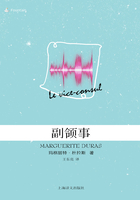ERE THE HALF-HOUR ENDED, five o'clock struck; school was dismissed, and all were gone into the refectory to tea. I now ventured to descend: it was deep dusk; I retired into a corner and sat down on the floor. The spell by which I had been so far supported began to dissolve; reaction took place, and soon, so overwhelming was the grief that seized me, I sank prostrate with my face to the ground. Now I wept: Helen Burns was not here; nothing sustained me; left to myself I abandoned myself, and my tears watered the boards. I had meant to be so good, and to do so much at Lowood: to make so many friends, to earn respect and win affection. Already I had made visible progress: that very morning I had reached the head of my class; Miss Miller had praised me warmly; Miss Temple had smiled approbation; she had promised to teach me drawing, and to let me learn French, if I continued to make similar improvement two months longer: and then I was well received by my fellow-pupils; treated as an equal by those of my own age, and not molested by any; now, here I lay again crushed and trodden on; and could I ever rise more?
"Never," I thought; and ardently I wished to die. While sobbing out this wish in broken accents, some one approached: I started up—again Helen Burns was near me; the fading fires just showed her coming up the long, vacant room; she brought my coffee and bread.
"Come, eat something," she said; but I put both away from me, feeling as if a drop or a crumb would have choked me in my present condition. Helen regarded me, probably with surprise: I could not now abate my agitation, though I tried hard; I continued to weep aloud. She sat down on the ground near me, embraced her knees with her arms, and rested her head upon them; in that attitude she remained silent as an Indian. I was the first who spoke—
"Helen, why do you stay with a girl whom everybody believes to be a liar?"
"Everybody, Jane? Why, there are only eighty people who have heard you called so, and the world contains hundreds of millions."
"But what have I to do with millions? The eighty, I know, despise me."
"Jane, you are mistaken: probably not one in the school either despises or dislikes you: many, I am sure, pity you much."
"How can they pity me after what Mr. Brocklehurst has said?"
"Mr. Brocklehurst is not a god: nor is he even a great and admired man: he is little liked here; he never took steps to make himself liked. Had he treated you as an especial favourite, you would have found enemies, declared or covert, all around you; as it is, the greater number would offer you sympathy if they dared. Teachers and pupils may look coldly on you for a day or two, but friendly feelings are concealed in their hearts; and if you persevere in doing well, these feelings will ere long appear so much the more evidently for their temporary suppression. Besides, Jane"—she paused.
"Well, Helen?" said I, putting my hand into hers: she chafed my fingers gently to warm them, and went on—
"If all the world hated you, and believed you wicked, while your own conscience approved you, and absolved you from guilt, you would not be without friends."
"No; I know I should think well of myself; but that is not enough: if others don't love me I would rather die than live—I cannot bear to be solitary and hated, Helen. Look here; to gain some real affection from you, or Miss Temple, or any other whom I truly love, I would willingly submit to have the bone of my arm broken, or to let a bull toss me, or to stand behind a kicking horse, and let it dash its hoof at my chest—"
"Hush, Jane! you think too much of the love of human beings; you are too impulsive, too vehement; the sovereign hand that created your frame, and put life into it, has provided you with other resources than your feeble self, or than creatures feeble as you. Besides this earth, and besides the race of men, there is an invisible world and a kingdom of spirits: that world is round us, for it is everywhere; and those spirits watch us, for they are commissioned to guard us; and if we were dying in pain and shame, if scorn smote us on all sides, and hatred crushed us, angels see our tortures, recognise our innocence (if innocent we be: as I know you are of this charge which Mr. Brocklehurst has weakly and pompously repeated at second-hand from Mrs. Reed; for I read a sincere nature in your ardent eyes and on your clear front), and God waits only the separation of spirit from flesh to crown us with a full reward. Why, then, should we ever sink overwhelmed with distress, when life is so soon over, and death is so certain an entrance to happiness—to glory?"
I was silent; Helen had calmed me; but in the tranquillity she imparted there was an alloy of inexpressible sadness. I felt the impression of woe as she spoke, but I could not tell whence it came; and when, having done speaking, she breathed a little fast and coughed a short cough, I momentarily forgot my own sorrows to yield to a vague concern for her.
Resting my head on Helen's shoulder, I put my arms round her waist; she drew me to her, and we reposed in silence. We had not sat long thus, when another person came in. Some heavy clouds, swept from the sky by a rising wind, had left the moon bare; and her light, streaming in through a window near, shone full both on us and on the approaching figure, which we at once recognised as Miss Temple.
"I came on purpose to find you, Jane Eyre," said she; "I want you in my room; and as Helen Burns is with you, she may come too."
We went; following the superintendent's guidance, we had to thread some intricate passages, and mount a staircase before we reached her apartment; it contained a good fire, and looked cheerful. Miss Temple told Helen Burns to be seated in a low arm-chair on one side of the hearth, and herself taking another, she called me to her side.
"Is it all over?" she asked, looking down at my face. "Have you cried your grief away?"
"I am afraid I never shall do that."
"Why?"
"Because I have been wrongly accused; and you, ma'am, and everybody else, will now think me wicked."
"We shall think you what you prove yourself to be, my child. Continue to act as a good girl, and you will satisfy us."
"Shall I, Miss Temple?"
"You will," said she, passing her arm round me. "And now tell me who is the lady whom Mr. Brocklehurst called your benefactress?"
"Mrs. Reed, my uncle's wife. My uncle is dead, and he left me to her care."
"Did she not, then, adopt you of her own accord?"
"No, ma'am; she was sorry to have to do it: but my uncle, as I have often heard the servants say, got her to promise before he died that she would always keep me."
"Well now, Jane, you know, or at least I will tell you, that when a criminal is accused, he is always allowed to speak in his own defence. You have been charged with falsehood; defend yourself to me as well as you can. Say whatever your memory suggests is true; but add nothing and exaggerate nothing."
I resolved, in the depth of my heart, that I would be most moderate—most correct; and, having reflected a few minutes in order to arrange coherently what I had to say, I told her all the story of my sad childhood. Exhausted by emotion, my language was more subdued than it generally was when it developed that sad theme; and mindful of Helen's warnings against the indulgence of resentment, I infused into the narrative far less of gall and wormwood than ordinary. Thus restrained and simplified, it sounded more credible: I felt as I went on that Miss Temple fully believed me.
In the course of the tale I had mentioned Mr. Lloyd as having come to see me after the fit: for I never forgot the, to me, frightful episode of the red-room: in detailing which, my excitement was sure, in some degree, to break bounds; for nothing could soften in my recollection the spasm of agony which clutched my heart when Mrs. Reed spurned my wild supplication for pardon, and locked me a second time in the dark and haunted chamber.
I had finished: Miss Temple regarded me a few minutes in silence; she then said—
"I know something of Mr. Lloyd; I shall write to him; if his reply agrees with your statement, you shall be publicly cleared from every imputation; to me, Jane, you are clear now."
She kissed me, and still keeping me at her side (where I was well contented to stand, for I derived a child's pleasure from the contemplation of her face, her dress, her one or two ornaments, her white forehead, her clustered and shining curls, and beaming dark eyes), she proceeded to address Helen Burns.
"How are you to-night, Helen? Have you coughed much to-day?"
"Not quite so much, I think, ma'am."
"And the pain in your chest?"
"It is a little better."
Miss Temple got up, took her hand and examined her pulse; then she returned to her own seat: as she resumed it, I heard her sigh low. She was pensive a few minutes, then rousing herself, she said cheerfully—
"But you two are my visitors to-night; I must treat you as such." She rang her bell.
"Barbara," she said to the servant who answered it, "I have not yet had tea; bring the tray and place cups for these two young ladies."
And a tray was soon brought. How pretty, to my eyes, did the china cups and bright teapot look, placed on the little round table near the fire! How fragrant was the steam of the beverage, and the scent of the toast! of which, however, I, to my dismay (for I was beginning to be hungry) discerned only a very small portion: Miss Temple discerned it too.
"Barbara," said she, "can you not bring a little more bread and butter? There is not enough for three."
Barbara went out: she returned soon—
"Madam, Mrs. Harden says she has sent up the usual quantity."
Mrs. Harden, be it observed, was the housekeeper: a woman after Mr. Brocklehurst's own heart, made up of equal parts of whalebone and iron.
"Oh, very well!" returned Miss Temple; "we must make it do, Barbara, I suppose." And as the girl withdrew she added, smiling, "Fortunately, I have it in my power to supply deficiencies for this once."
Having invited Helen and me to approach the table, and placed before each of us a cup of tea with one delicious but thin morsel of toast, she got up, unlocked a drawer, and taking from it a parcel wrapped in paper, disclosed presently to our eyes a good-sized seed-cake.
"I meant to give each of you some of this to take with you," said she, "but as there is so little toast, you must have it now," and she proceeded to cut slices with a generous hand.
We feasted that evening as on nectar and ambrosia; and not the least delight of the entertainment was the smile of gratification with which our hostess regarded us, as we satisfied our famished appetites on the delicate fare she liberally supplied.
Tea over and the tray removed, she again summoned us to the fire; we sat one on each side of her, and now a conversation followed between her and Helen, which it was indeed a privilege to be admitted to hear.
Miss Temple had always something of serenity in her air, of state in her mien, of refined propriety in her language, which precluded deviation into the ardent, the excited, the eager: something which chastened the pleasure of those who looked on her and listened to her, by a controlling sense of awe; and such was my feeling now: but as to Helen Burns, I was struck with wonder.
The refreshing meal, the brilliant fire, the presence and kindness of her beloved instructress, or, perhaps, more than all these, something in her own unique mind, had roused her powers within her. They woke, they kindled: first, they glowed in the bright tint of her cheek, which till this hour I had never seen but pale and bloodless; then they shone in the liquid lustre of her eyes, which had suddenly acquired a beauty more singular than that of Miss Temple's—a beauty neither of fine colour nor long eyelash, nor pencilled brow, but of meaning, of movement, of radiance. Then her soul sat on her lips, and language flowed, from what source I cannot tell. Has a girl of fourteen a heart large enough, vigorous enough, to hold the swelling spring of pure, full, fervid eloquence? Such was the characteristic of Helen's discourse on that, to me, memorable evening; her spirit seemed hastening to live within a very brief span as much as many live during a protracted existence.
They conversed of things I had never heard of; of nations and times past; of countries far away; of secrets of nature discovered or guessed at: they spoke of books: how many they had read! What stores of knowledge they possessed! Then they seemed so familiar with French names and French authors: but my amazement reached its climax when Miss Temple asked Helen if she sometimes snatched a moment to recall the Latin her father had taught her, and taking a book from a shelf, bade her read and construe a page of Virgil; and Helen obeyed, my organ of veneration expanding at every sounding line. She had scarcely finished ere the bell announced bedtime! no delay could be admitted; Miss Temple embraced us both, saying, as she drew us to her heart—
"God bless you, my children!"
Helen she held a little longer than me: she let her go more reluctantly; it was Helen her eye followed to the door; it was for her she a second time breathed a sad sigh; for her she wiped a tear from her cheek.
On reaching the bedroom, we heard the voice of Miss Scatcherd: she was examining drawers; she had just pulled out Helen Burns's, and when we entered Helen was greeted with a sharp reprimand, and told that to-morrow she should have half-a-dozen of untidily folded articles pinned to her shoulder.
"My things were indeed in shameful disorder," murmured Helen to me, in a low voice: "I intended to have arranged them, but I forgot."
Next morning, Miss Scatcherd wrote in conspicuous characters on a piece of pasteboard the word "Slattern," and bound it like a phylactery round Helen's large, mild, intelligent, and benign-looking forehead. She wore it till evening, patient, unresentful, regarding it as a deserved punishment. The moment Miss Scatcherd withdrew after afternoon school, I ran to Helen, tore it off, and thrust it into the fire: the fury of which she was incapable had been burning in my soul all day, and tears, hot and large, had continually been scalding my cheek; for the spectacle of her sad resignation gave me an intolerable pain at the heart.
About a week subsequently to the incidents above narrated, Miss Temple, who had written to Mr. Lloyd, received his answer: it appeared that what he said went to corroborate my account. Miss Temple, having assembled the whole school, announced that inquiry had been made into the charges alleged against Jane Eyre, and that she was most happy to be able to pronounce her completely cleared from every imputation. The teachers then shook hands with me and kissed me, and a murmur of pleasure ran through the ranks of my companions.
Thus relieved of a grievous load, I from that hour set to work afresh, resolved to pioneer my way through every difficulty: I toiled hard, and my success was proportionate to my efforts; my memory, not naturally tenacious, improved with practice; exercise sharpened my wits; in a few weeks I was promoted to a higher class; in less than two months I was allowed to commence French and drawing. I learned the first two tenses of the verb Etre, and sketched my first cottage (whose walls, by-the- bye, outrivalled in slope those of the leaning tower of Pisa), on the same day. That night, on going to bed, I forgot to prepare in imagination the Barmecide supper of hot roast potatoes, or white bread and new milk, with which I was wont to amuse my inward cravings: I feasted instead on the spectacle of ideal drawings, which I saw in the dark; all the work of my own hands: freely pencilled houses and trees, picturesque rocks and ruins, Cuyp-like groups of cattle, sweet paintings of butterflies hovering over unblown roses, of birds picking at ripe cherries, of wren's nests enclosing pearl-like eggs, wreathed about with young ivy sprays. I examined, too, in thought, the possibility of my ever being able to translate currently a certain little French story which Madame Pierrot had that day shown me; nor was that problem solved to my satisfaction ere I fell sweetly asleep.
Well has Solomon said—"Better is a dinner of herbs where love is, than a stalled ox and hatred therewith."
I would not now have exchanged Lowood with all its privations for Gateshead and its daily luxuries.















